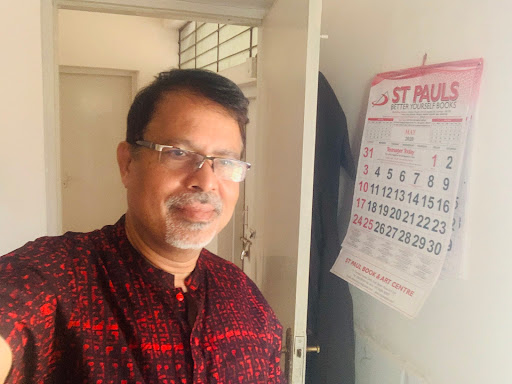Fasting in Ramzan is not merely physically restraining from the obvious food and drink, but the total commitment of the servant’s body and soul to the letter and spirit of fasting.
The blessed month of Ramzan accords priority to charity and it could be well understood from the fact that Id-ul-Fithr is popularly known as ‘festival of charity’. The Muslims before attending the special Khutba Prayers in the Idgahs (open grounds) and mosques should give a certain amount of charity to the poor and needy. This gesture, ordained since Allah ordered people to fast throughout the Islamic month of Ramzan, was to enable the poor also to take part in the Id celebrations.
It is reported in the Hadis (sayings of Prophet) Sahih Bukhari that “The Prophet Muhammad was naturally the most generous of people and he used to be more generous than ever in the month of Ramzan.”
Allah Almighty has given you, so Muslims should try to give generously in Ramzan, both Sadaqah (optional charity) and Zakat (obligatory charity). Every time when a Muslim gives something in charity Allah eases his physical, spiritual and mental conditions. He expands for him His sustenance.
Sadaqah does not only have to be money. It can also be a good deed—such as helping another person—done for the sake of Allah Almighty and without expecting any reward from the person. Even a smile is considered charity in Islam. Most Muslims pay their Zakat during Ramzan because the reward is so much greater in that month.
Prophet Muhammad, according to Tirmizi Hadis, said “This is the month of charity in which believer’s sustenance is increased. Whosoever feeds a fasting person or gives a fasting person a single date fruit or a sip of water, to break the fast, for him there shall be forgiveness of his sins and he will be saved from the fire of hell, and for him shall be the same reward as for him (whom he fed).”
Because of the great reward for feeding a fasting person, in many places ‘Iftaar’ (the breaking of the fast at sunset) is served in mosques, with the food donated or brought by individuals to share. This contact between the various levels of society helps to create a real bond of brotherhood in the Muslim community.
Prophet Muhammad, again according to Sahih Muslim Hadis, said, “When a man dies all of his deeds come to an end, except for three: ongoing charity, knowledge which is benefited from, or pious offspring who pray for them.”
The Prophet Muhammad enjoined Zakat on those who fast to purify them from any indecent act or deeds. It is a sort of purification of the soul on the individual level, a cure against miserliness, and a social safety net. The rich are obliged to come in contact with the poor and the poor with the even less fortunate. Zakat provides for the poor and spares them the humiliation of asking for charity.
Syed Muthahar Saqaf

No comments:
Post a Comment